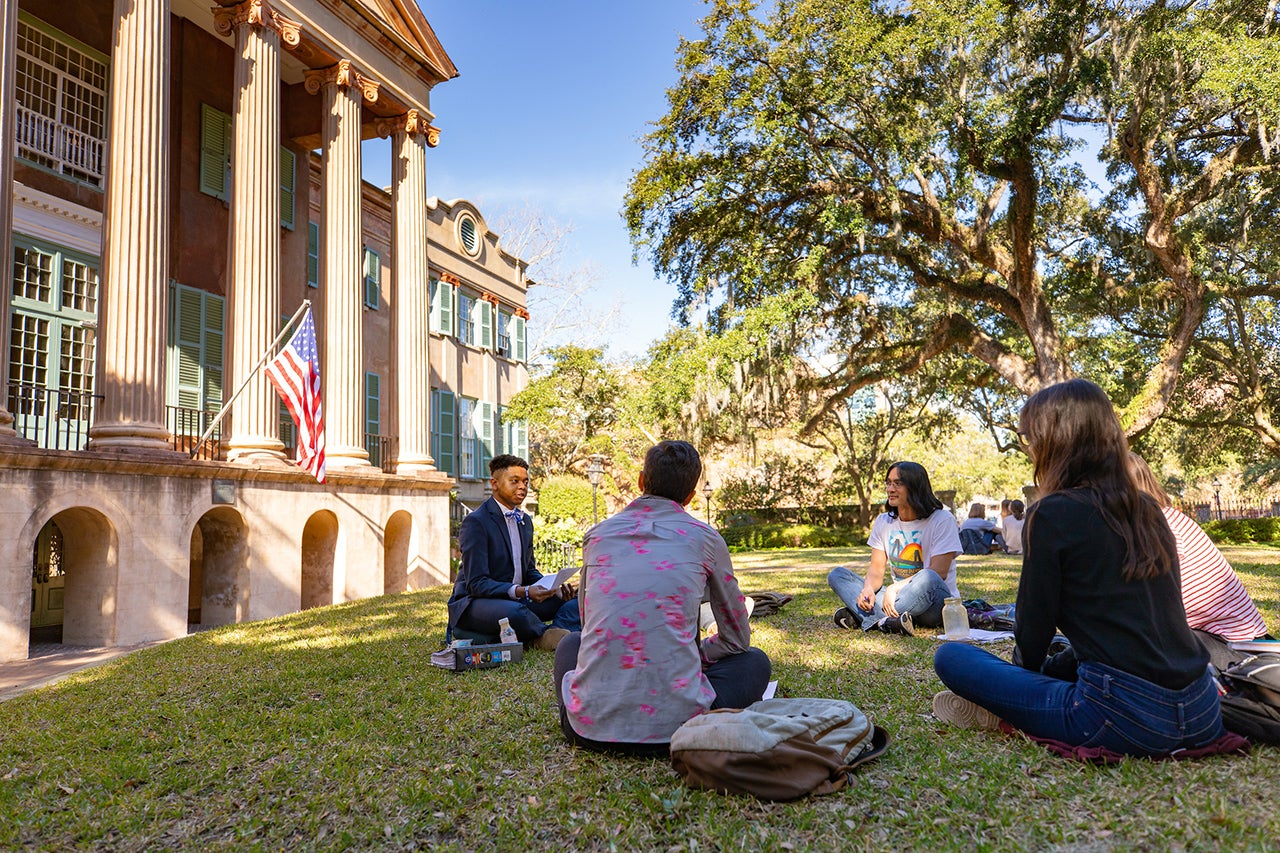The College of Charleston is expanding its diversity efforts this fall with the launch of the online program Diversity EDU as well as a new initiative dubbed Critical Conversations. The goal of the two efforts is to help move the conversation surrounding diversity and inclusion on campus from talk to action.
“It’s about helping our campus community engage more comfortably and have more meaningful dialogues,” says Rénard Harris, CofC’s vice president of access and inclusion and chief diversity officer. “We want to reduce microaggressions and mitigate unconscious biases. You don’t have to be a race and social justice expert; it’s just meant to make you more aware of and comfortable with engaging with these things.”
The College piloted Diversity EDU last year as an online diversity seminar for first-year and incoming students. This year all students as well as faculty and staff will be asked to complete the program within the academic year, by June 30, 2021. After that, those who have not completed the program will receive reminder notifications.
Two different versions of the Diversity EDU program will be offered, one tailored specifically for students and one designed for faculty/staff. For students, Diversity EDU will explore topics such as defining diversity, engaging comfortably with differences, examining assumptions, searching for similarities, and microagressions and their impact. The Diversity EDU version for faculty and staff will focus on engagement with diversity, communication for inclusion and the influence of unconscious bias.
Diversity EDU is currently available for students in OAKS. The program will launch for faculty and staff later this fall through cofc.myabsorb.com.
Harris says he’s hopeful that as more members of the CofC community make small changes to be more inclusive, the College will see big changes in how minority students share in the CofC experience.
“It invites students, faculty and staff to bring their best forward,” he says. “When there are these unseen obstacles, you kind of hold back what your strengths might be. We want to unleash the beautiful side of ourselves. Those attributes — the ones that make us unique — could really enhance the community.”
And to keep the momentum of Diversity EDU going beyond the online program, the College, under the direction of Provost Suzanne Austin, is launching the Critical Conversations initiative. Emanating from the College’s new strategic plan, Critical Conversations aims to advance the institution’s commitment to diversity, equity and inclusion through enhanced resources and events.
“Critical Conversations is designed to facilitate campus-wide discussions about recent events including the killing of George Floyd and subsequent nation-wide protests, the COVID-19 pandemic and other issues important to the campus community,” says Austin. “The College has many ongoing efforts to address both historical and current social, economic, political and cultural issues, and Critical Conversations is intended to highlight these and feature new campus-wide efforts, as well.”
As part of the initiative, the College of Charleston Libraries is developing an archive of electronic resources to facilitate productive discourse about current issues both in and out of the classroom. Additionally, special events furthering the Critical Conversations mission will take place throughout the 2020-21 academic year, including panel discussions and invited lectures by campus experts as well as local and nationally known figures. A Critical Conversations website is also in development to help promote the initiative and its related programs.
Critical Conversations, says Harris, is a way to help enhance and extend the impact of Diversity EDU by carrying forward those concepts into the classroom and beyond.
“We want action and dialogue, not just dialogue alone,” says Harris. “At the end of the day, it’s not enough to just have talked about diversity and inclusion. We need to put it into play.”
As that takes root, the hope is that students from all walks of life will feel empowered to be an active member of the CofC community, who can be freely seen and heard.
“Whether you’re Black, white or brown, whether you’re from South Carolina or another state, we want you to bring your positive attributes and share them at the College of Charleston,” says Harris.






